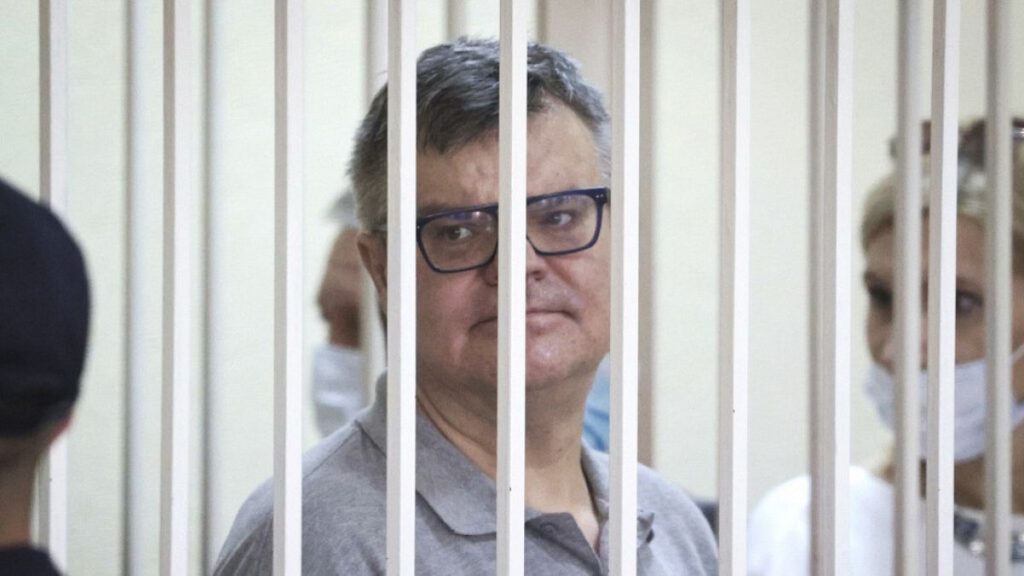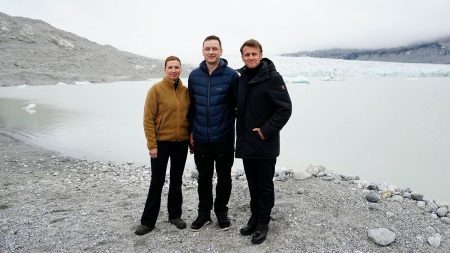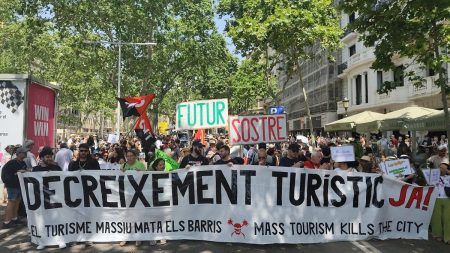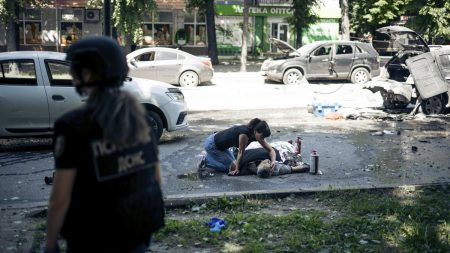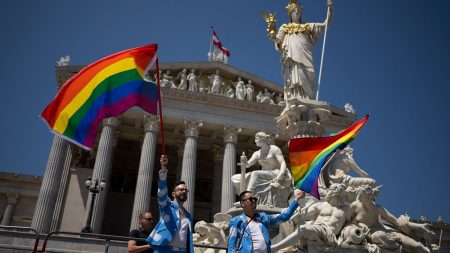The sudden reappearance of Viktar Babaryka, a prominent Belarusian opposition figure, after nearly two years of incommunicado detention has sparked both relief and concern. Babaryka, who challenged President Alexander Lukashenko in the contested 2020 election, was subsequently imprisoned on corruption charges he vehemently denies. His recent emergence in a video, posted by a former opposition journalist now aligned with the government, comes just weeks before another presidential election in which Lukashenko is expected to secure yet another term, further solidifying his decades-long authoritarian rule. The circumstances surrounding Babaryka’s reappearance remain shrouded in ambiguity, raising questions about the authenticity and intent behind the video’s release.
The video, brief and seemingly controlled, shows a visibly thinner Babaryka clad in a prison uniform marked with a yellow tag, a designation reserved for political prisoners and signifying harsher treatment within the penal colony system. This visual serves as a stark reminder of the oppressive conditions faced by those who dare to oppose Lukashenko’s regime. The timing of the video’s release, so close to the upcoming election, is seen by many as a calculated move by the Belarusian authorities to preemptively address potential accusations of enforced disappearances of political opponents. Babaryka’s emaciated appearance underscores the brutal reality of political repression in Belarus, serving as a chilling warning to any potential dissenters.
Babaryka’s case is not an isolated incident. He is one among over a thousand political prisoners currently languishing in Belarusian jails, a testament to the widespread crackdown on dissent that has characterized Lukashenko’s rule. Human rights organizations have repeatedly called for the release of these prisoners, highlighting the systematic suppression of fundamental freedoms within the country. The European Parliament has joined these calls, urging the Belarusian government to respect human rights and release all political prisoners. The 2020 election, which sparked widespread protests against alleged vote-rigging, led to a brutal wave of repression, with tens of thousands arrested and subjected to violence at the hands of the authorities.
The story of Viktar Babaryka is intertwined with the broader narrative of Belarus’s struggle for democracy. His initial ambition to challenge Lukashenko in the 2020 election was met with swift and brutal repression, epitomized by his arrest and subsequent imprisonment. His case highlights the lengths to which the regime is willing to go to silence dissent and maintain its grip on power. The denial of contact with family and lawyers further underscores the inhumane treatment meted out to political prisoners in Belarus. The recent video, while offering a glimpse of Babaryka’s current state, raises more questions than it answers, particularly regarding the conditions under which it was filmed and the motivations behind its release.
The individual who released the video, Roman Protasevich, adds another layer of complexity to the situation. A former opposition journalist who was himself arrested and subsequently became a government supporter, Protasevich’s role in disseminating the video has been met with skepticism and suspicion. Some believe he is acting under duress, while others accuse him of collaborating with the regime. This ambiguity highlights the precarious position of those who fall afoul of the Belarusian authorities, often facing the stark choice between compliance and continued persecution.
The upcoming presidential election, set against this backdrop of repression and uncertainty, is unlikely to offer any genuine challenge to Lukashenko’s authority. With key opposition figures imprisoned or exiled, the political landscape remains heavily tilted in his favor. Sviatlana Tsikhanouskaya, a prominent opposition leader who was forced to flee the country after the 2020 election, has voiced her relief at seeing Babaryka alive but has also demanded information about other political prisoners held incommunicado, including her own husband. Her call echoes the broader demand for transparency and accountability from the Belarusian government, a demand that has been consistently ignored. The international community continues to monitor the situation in Belarus with concern, urging the authorities to respect human rights and release all political prisoners.




